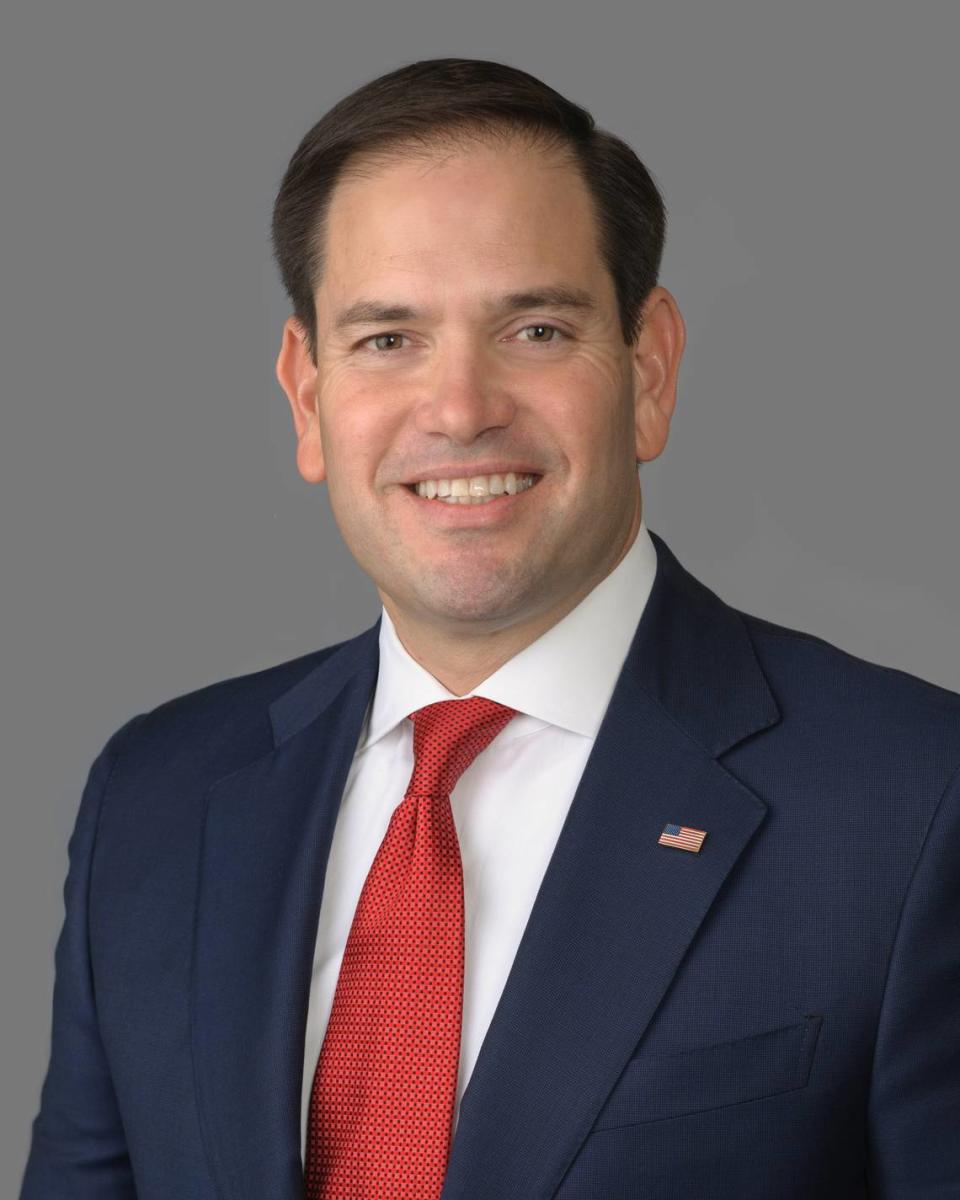Marco Rubio: Reimposed sanctions on Maduro are overdue and insufficient | Opinion
- Oops!Something went wrong.Please try again later.
- Oops!Something went wrong.Please try again later.
- Oops!Something went wrong.Please try again later.
President Joe Biden will doubtlessly receive praise for this week re-imposing oil and gas sanctions on Nicolás Maduro’s narco-dictatorship in Venezuela.
While the sanctions themselves are a step in the right direction, the president’s conduct is not. This White House should have never lifted the sanctions in the first place, and its policy toward the illegitimate Maduro regime remains inexcusably weak.
Last October, the United States waived constraints on Venezuela’s state-run oil, gas and gold sectors in exchange for Maduro’s promise to administer a “free and fair” presidential election this year and that it collaborate with opposition members. That was a naive decision with devastating consequences.
Maduro banned his popular primary opponent, María Corina Machado, from running against him. Meanwhile, he used the economic windfall from sanctions relief to replenish his bank accounts and reconsolidate his grip on power.
Part of the blame for that falls on Biden. He should have known Maduro would not keep his promises. What incentive does the narco-dictator have to allow the Venezuelan people to vote him out of office? Zero. Beyond that, what is Maduro’s track record for negotiating in good faith? Again, zero.
Moreover, Biden should have re-imposed sanctions as soon as Maduro arbitrarily detained members of Machado’s campaign team. Last October, I questioned Secretary of State Antony Blinken about this. Would the president reverse course if Maduro broke his promise?
“They’re not getting a free pass,” the secretary responded. But even when Maduro placed a ban on Machado, Biden only restored sanctions on Venezuela’s state-run gold sector. That allowed the narco-regime to rake in roughly billions from oil and gas profits during February, March and early April.
Unfortunately, such weakness is nothing new for this White House. In March 2022, the president sent a secret diplomatic delegation to Caracas. In October 2022, he set free two of Maduro’s narco-nephews, both convicted drug dealers. In November 2022, the president granted Chevron a special license to do business in Venezuela.
The following year, he sent another secret delegation to meet with Maduro’s representatives in Qatar. And in December 2023, the Biden administration released Maduro’s money launderer, Alex Saab, from a U.S. prison.
All five of these decisions, together with last October’s sanctions relief, have only emboldened Maduro. Just recently, the narco-dictator threatened open war against it neighbor Guyana, a democracy with close economic ties to our government. Meanwhile, Venezuelans are no closer to being free from oppression.
In fact, more Venezuelans are political prisoners now than before the Biden administration began its campaign of appeasement. Close to 270 remain in unjust detention, many of them languishing in the El Helicoide torture center. Thousands more are escaping their country.
My colleagues and I have repeatedly urged Biden to maintain the 60 country-strong coalition that rejects Maduro’s legitimacy. Instead of going soft on the narco-dictator, the U.S. should collaborate with democratic partners to impose additional sanctions on him and other members of the Cartel de los Soles — and to enforce the 2020 indictment against Maduro and his cronies for terrorism, corruption and drug trafficking.
Would these moves solve every problem in Venezuela? No.
Nevertheless, they would help constrain the regime’s tyranny and diminish its cash flow. I want to see a Venezuela that is free and democratic again. President Biden’s strategy of appeasement has only prolonged Maduro’s grip on power.
Florida Republican U.S. Senator Marco Rubio was first elected in 2010.


